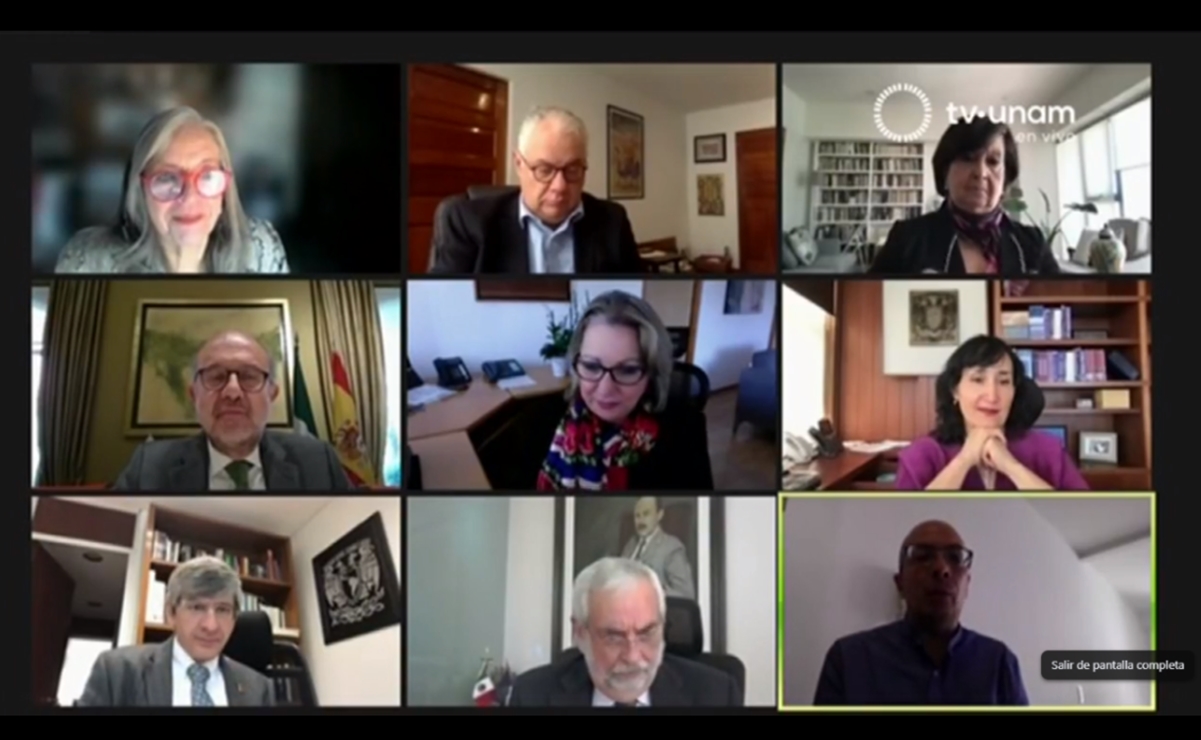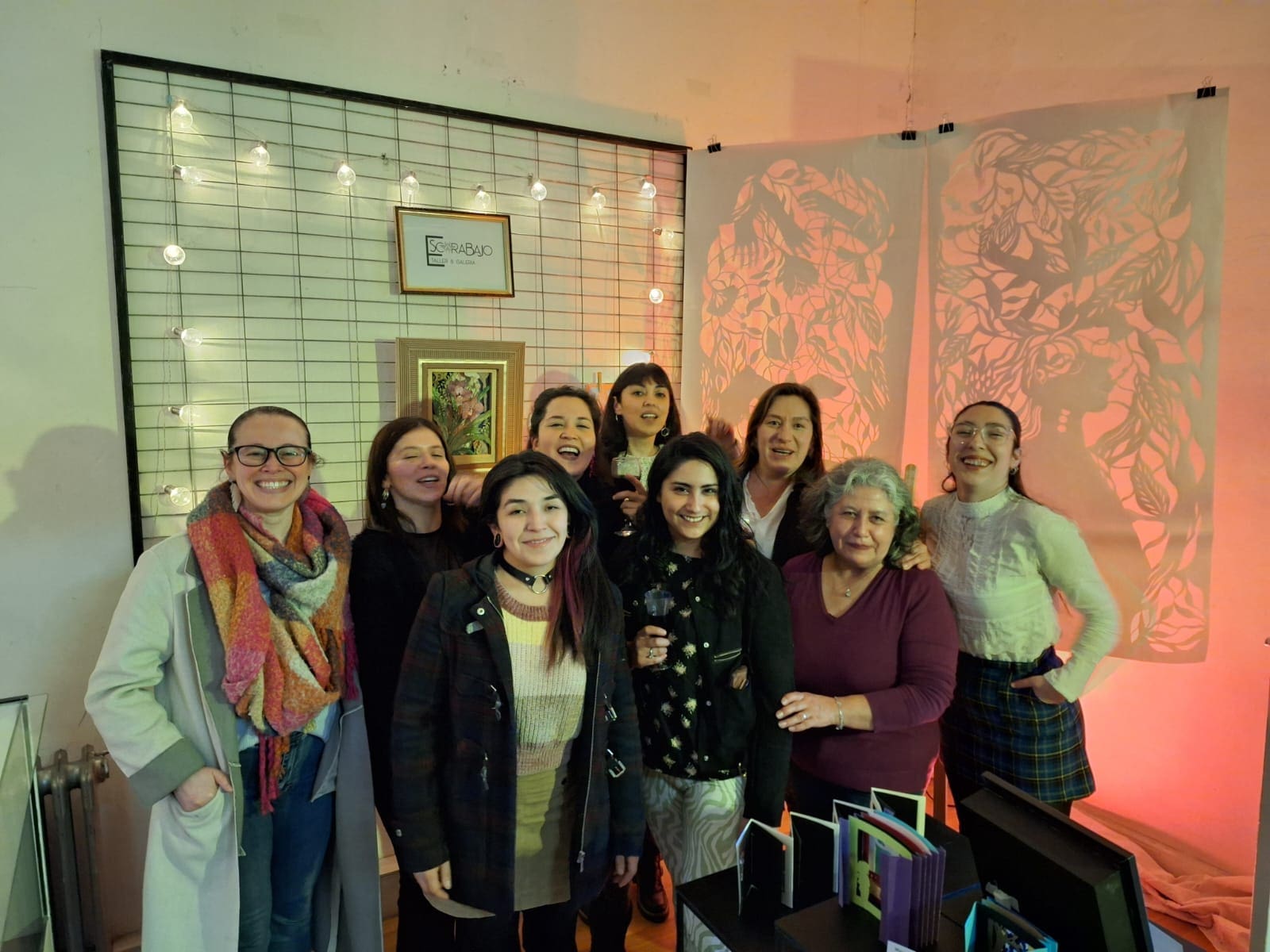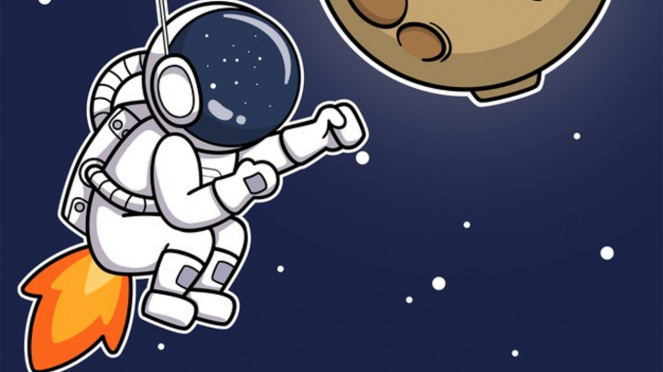The Aleph. Arts and Science Festival started today its second virtual edition, with the motto “The frontiers of medicine”, in which more than 130 activities will be offered with some of the best experts from around the world to talk about science, literature, art of medicine, collective health, cutting-edge research in the field of physiology, as well as mental health in the XXI century.
At the opening ceremony that took place both on the platform culturaunam.mx/elalephAs in social networks, the head of the UNAM Cultural Diffusion Coordination, Jorge Volpi, indicated that videoconferences, dialogue tables, workshops, podcasts, digital galleries, concerts and dance functions will be offered, in which figures such as the scientist participate. Israeli Aaron Ciechanover, winner of the Nobel Prize in Chemistry in 2004; the medical director of FemTech Clue in Berlin, Lynae brayboy; the French neurologist Lionel Naccache; the mexican neuropsychiatrist Jesus Ramírez Bermúdez; as well as the French anthropologist and sociologist David Le Breton, among others.
“It will be a festival that continues the effort to continue becoming the vanguard of thought in our time, to try to understand much better what is happening to us and to glimpse the consequences of what is beginning to be called post-pandemic. The appearance of vaccines, one of the great advances of our time, allows us to glimpse this new stage and see it through the lenses of medicine in all its different disciplines, “said Volpi, who added that in its 2020 edition it had 12 million viewers.
For his part, the rector of UNAM, Dr. Enrique Graue, indicated that a year ago they presented El Aleph with concern and uncertainty about the scope and impact that Covid-19 would have on our lives. “Much has happened since then and new winds will come that we will know how to overcome and translate into new realities and expectations. But as a National University and as a university student we have been able not only to cope with the pandemic, but also, faced with the challenge that it represented, we did our best. we have in our wills and capacities, “he said.
Read also: “In the long term, in the brain, the effects of Covid persist”: Sonia Villapol
And he added: “We have known how to adapt, maintain and transform the academic and cultural offer, creating options that have enriched our lives in difficult times and given the shortcomings that affected us all.”
The rector of UNAM stated that the weakening of the pandemic begins to be seen, as well as a recomposition, albeit slow, of our lives and our functions. For this reason, he stressed, little by little spaces will be recovered that allow us to show again how much of the human that should have been saved, but that will soon flourish again.
“The frontiers of medicine, as a central theme, brings us together in this edition. The way in which The Aleph will approach medicine, science, art and technology, reflects the importance of seeing ourselves and otherness, as a all human, with the dynamism of their best expressions. And the pandemic has had implications in each of the elements that define us as human beings. We can only understand the magnitude of the effects of the covid and the time that we have elapsed, if we deeply visualize the relationship between the physical, the biological and the psychological with the social, cultural and artistic. This fine, complex and delicate network of knowledge is what should make us rational and empathetic human beings that today’s world demands ” , He said.
The inaugural transmission also had the participation of the doctors Guadalupe Valencia (Coordinator of Humanities) and Tamara Martinez (Coordinator for Gender Equality); Doctors William Lee (Coordinator of Scientific Research) and Germán Fajardo Dolci (Director of the Faculty of Medicine), doctors María Elena Medina-Mora (Director of the Faculty of Psychology) and Ana Carolina Ibarra González (Director of the Institute of Historical Research ), and the diplomat Juan López-Dóriga Pérez (Ambassador of Spain in Mexico).
Among the activities are the table “Counting the pandemic and expectations for Mexico”, by Dr. David Kershenobich, director of the National Institute of Medical Sciences and Nutrition Salvador Zubirán, and Dr. Guillermo Domínguez, specialist in Internal Medicine, Anesthesiology and Medicine of the Ill in a Critical State, who will talk about what is happening in the world in terms of infections and health, as well as about treatments, vaccination and the place that Mexico occupies in the current health crisis and the fundamental role that plays the Institute of Nutrition in the country (Wednesday 26, 8 pm).
The Festival’s artistic offer includes authors such as David Grossman, who will participate in the discussion “The language of intimacy and the repair of the human being”, in which he will address the power of imagination and words that help heal our wounds. , traumas and tragedies (Sunday 30, 8 pm).
The festival will take place from today and will end on May 30; It will have 130 activities, including 25 dialogue tables, 14 keynote conferences and workshops. The 12 activities on Friday May 28 will be dedicated to commemorating the International Day of Action for Women’s Health.





